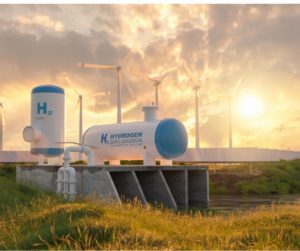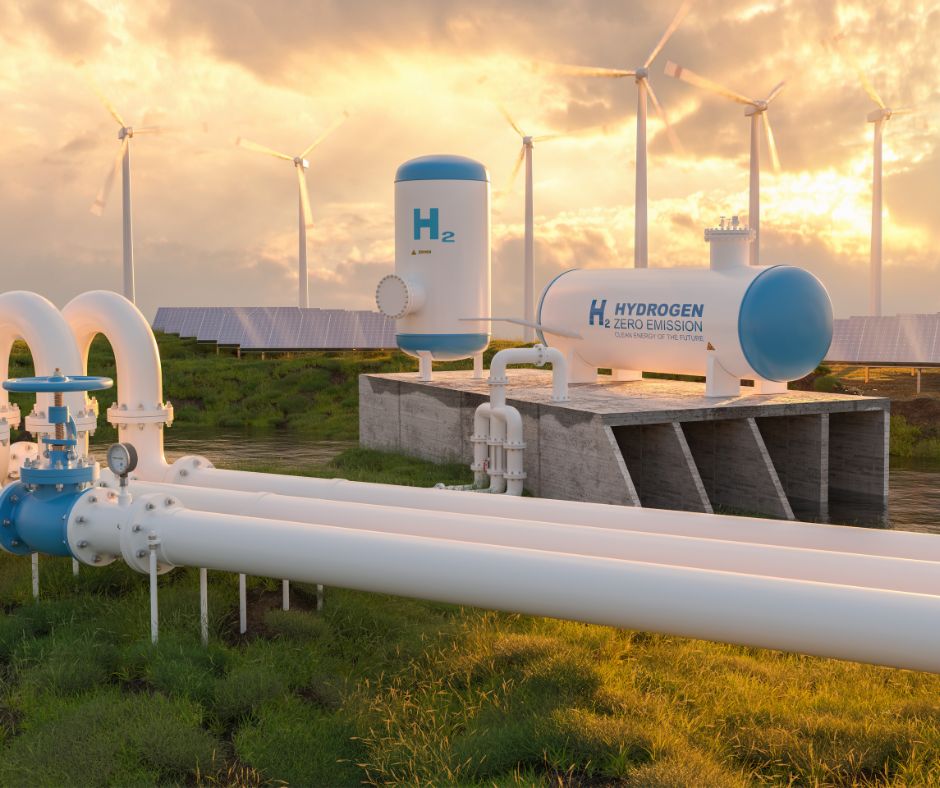Natural gas could become a key element in the journey towards a hydrogen train economy.
A particularly fitting example of the technological advancements being made in hydrogen-powered train production came from the Karlsruhe Institute of Technology in Germany. The institute's researchers are developing a new method for separating hydrogen from natural gas using a liquid metal bubble column, which creates a solid carbon byproduct rather than carbon dioxide emissions in the air.

Hydrogen trains
Currently, around 80 scientists from various disciplines are working on technologies for hydrogen production, storage, and usage. The research is focused on storage materials and process, system, and safety technologies. The researchers pursue a systemic approach, covering the entire energy conversion chain from primary energy to production processes to direct use in the mobility sector.
This innovation, which is still in the early stages of testing and needs to be demonstrated as a scalable and commercial technology, could have enormous implications throughout the energy sector, as it potentially allows for upgrading natural gas wellheads to convert extracted natural gas into pure hydrogen without any harmful emissions released.
This flexibility, combined with the fact that railway electrification is quickly becoming unsustainably expensive (the costs of electrification in the United States have increased from around $2 million per mile in 2003 to over $10 million per mile today), makes it clear that hydrogen propulsion will become increasingly dominant in the railway sector.
Hydrogen Trains in Italy
Currently, there are few experimental hydrogen-powered trains in Italy, but there are some ongoing projects to develop and implement this technology in the coming years.
One of the most important projects concerns the Emilia-Romagna region, which has developed a plan to introduce hydrogen-powered trains on the Bologna-Porretta Terme railway line. These trains will be produced by Alstom, which has already started the series production of the Coradia iLint model, the world's first hydrogen-powered train.
In addition, the Lombardy region has also announced a plan to introduce hydrogen-powered trains on the Milan-Mantua-Cremona railway line. Once again, the production of these trains will be entrusted to Alstom.
Similar projects are under development in other Italian regions as well, such as Tuscany and Piedmont. However, at the moment, these projects are still in the preliminary phase and it is not yet clear when they will actually be implemented.
The use of hydrogen-powered trains is considered a sustainable and low-carbon alternative to diesel trains, as the exhaust gas of hydrogen trains consists only of water vapor. However, the production of hydrogen from renewable sources is still expensive and not very efficient, which could limit the spread of this technology in the future.
Gesa Industry represents innovation and quality.
Gesa Industry closely follows technological developments in the rail sector, welcoming and studying every innovation in order to provide its customers with an always updated and cutting-edge offer in the field of train interiors.



